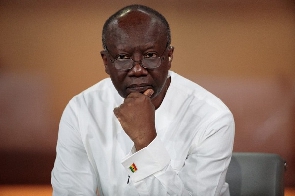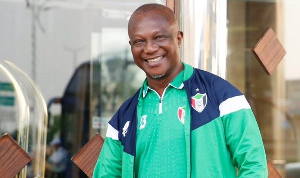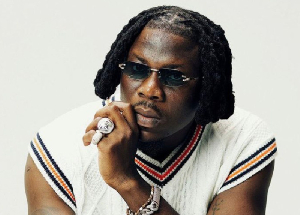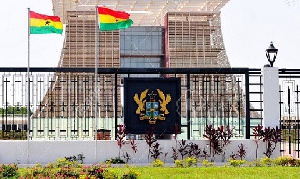Everything matters to us because we are alive. If we were dead, we certainly would not be caring about a virus. Consequently, we must care about our existence today and that of the many yet to come. But to be able to do this, we must pause for a moment and ask some few questions.
What is that keeps us alive in this material world? Well, the answer is in the question. It is material. Why? Because we are part material. And what is material? It is the physical objects around us. It is not things in the mind or spirit. In this context, it is the physical resources that our lives depend on. We need these resources to survive hence there should be a concerted effort to distribute them fairly.
Therefore, we must first of all look at our existence from a materialistic perspective. This is basic. If we miss this. We miss everything. Karl Marx and Friedrich Engels had written in The Communist Manifesto in 1848 that the history of society is a history of class struggle—between the rich and poor. The rich with access to the material resources use it as a weapon against the poor. This is to ensure the poor keeps serving the rich, creating a system of perpetual poverty that adds to the advantage of the rich.
And the Ghanaian political elites have over the years proved Marx and Engels right. Since the removal of Kwame Nkrumah from office, they have not only presided over corruption and nepotism, they have deliberately created mass suffering that makes them lords over the rest of the population. They have created religious, tribal and ethnic faut lines that have turned the people against each other instead of uniting for a common purpose. And as the people wander in this bubble, dying in poverty, disease, and ignorance. The establishment prosper. They loot our collective resources without shame. This is how they have drawn their power and prestige for the last 50 years and over. The people did not resist because they did not understand the system.
But now people are beginning to understand the fraud. And this Coronavirus disease could be the defining moment. The nature of the disease is not fully known. Experts are still grappling for more insight. Whether the disease spreads in Ghana or not. One thing is certain. The country will not escape the global economic shockwave of the disease. This would be the first time since the birth of Ghana that she would be experiencing a major global catastrophe. And as previous and current leaders failed to build a strong foundation, the journey ahead would be tough.
Currently, the global economy is on its knees. The world is facing the worst economic downturn since the Great Depression, according to the International Monetary Fund (IMF). United Nations boss António Guterres also said the current situation is the biggest challenge for the world since the Second World War, and that it could lead to a recession “that probably has no parallel in the recent past”.
Of course, Ghana’s economy is nothing to write home about. Those who exalt it are the people benefiting directly. They praise the economy for local political support and to deceive unsuspecting foreign investors. The economy has inefficient and corrupt public sector. The private sector is dominated by political cronies, clientelism, and above all, ruthless multinational corporations who take advantage of the weak and ineffective system to exploit the country. The end game of this obvious conspiracy is rising national debt, unemployment, lack of basic services like health, education and so on. The most serious of these is debt.
The country’s finance minister Ken Ofori-Atta recently told the Financial Times in an interview that Ghana is among African nations who have reached a “break the glass moment”. The expression simply means Ghana in dire need of an emergency plan to survive. The IMF had announced a $50bn stimulus package for developing countries as a result of the Coronavirus. But Mr Ofori-Atta together with other African finance ministers called for $100bn instead.
Put this in perspective, these ministers careless about the consequence of the money they are taking from the so-called international partners. Already, Ghana is saddled with huge public debt. At the end of November 2019, the country’s public debt was pegged at a staggering GH¢214.9 billion ($39 billion). Therefore, taking more loans means the country will continue to lose the little control it had on the economy to international proxies masquerading as international partners. The political elites would not feel the heat. But the burden would be on the ordinary Ghanaian on the street.
Put it bluntly, the Ghanaian political establishment is a disaster. The have ruined the fortunes of the nation. They have only enriched themselves and their cronies. And that is why we should not listen to them anymore. Whether they are from the National Democratic Congress or the New Patriotic Party. Whether they are in opposition or in government. They are the same. They have failed woefully. They use words like ‘National, Patriotic’ but in reality their minds are far away from the meaning of these words. Their only preoccupation is to grab state power and steal. But we cannot continue down this road.
So we must stand up for ourselves. To save ourselves from the humiliation and build for ourselves a country we can confidently point finger at. A country in which there would be equitable distribution of resources to maintain our existence. This is the new paradigm. This is the new hope. We would break from the shackles of the conspirators.
Wherever men find themselves they must live as a community. They must take care of each other. The strong must protect the vulnerable. We need a new movement that would put our collective national interest first.
My dear fellow citizens. This is the only moment we have. Let us get rid of the artificial barriers among us and begin to select leaders who can champion our collective progress. This is a must direction or we fall deeper into the abyss of misery and humiliation.
Email: issaka.adams@student.uva.nl
Blog: changeghanablog.wordpress.com
The author is a communication science student, University of Amsterdam, The Netherlands. The views expressed in this article are entirely that of the author. They do not represent any organization or institution.
Opinions of Friday, 24 April 2020
Columnist: Issaka Adams



















